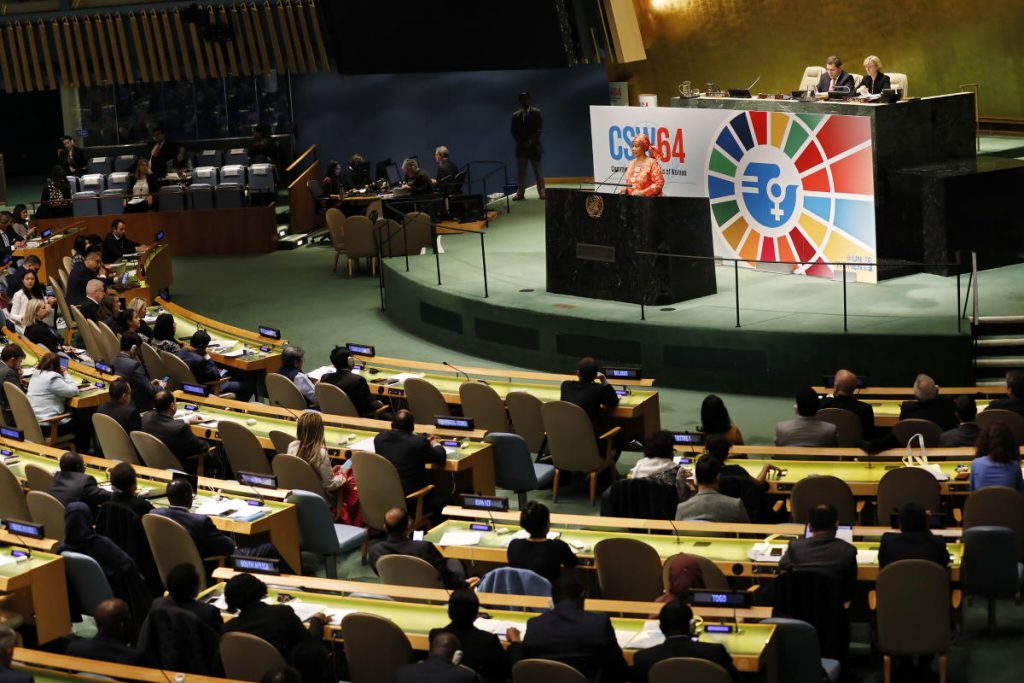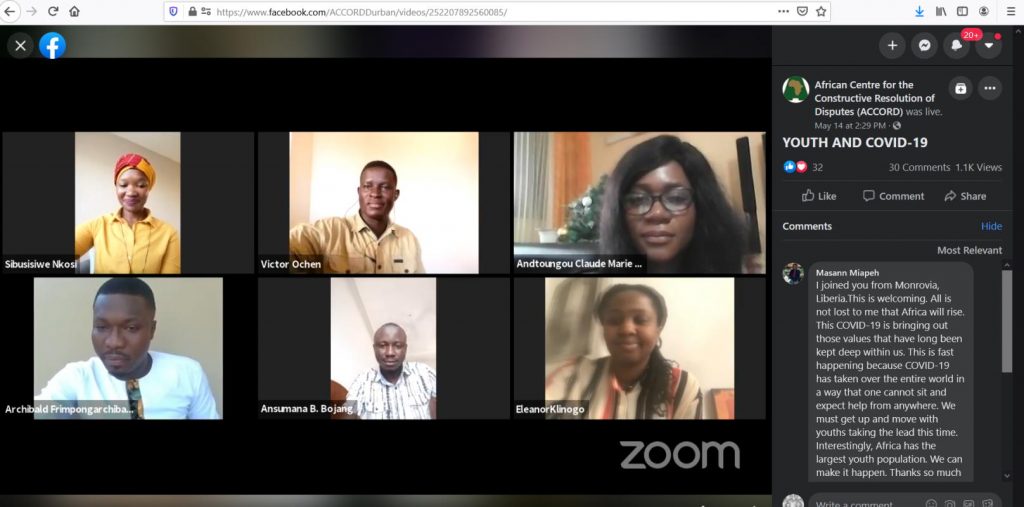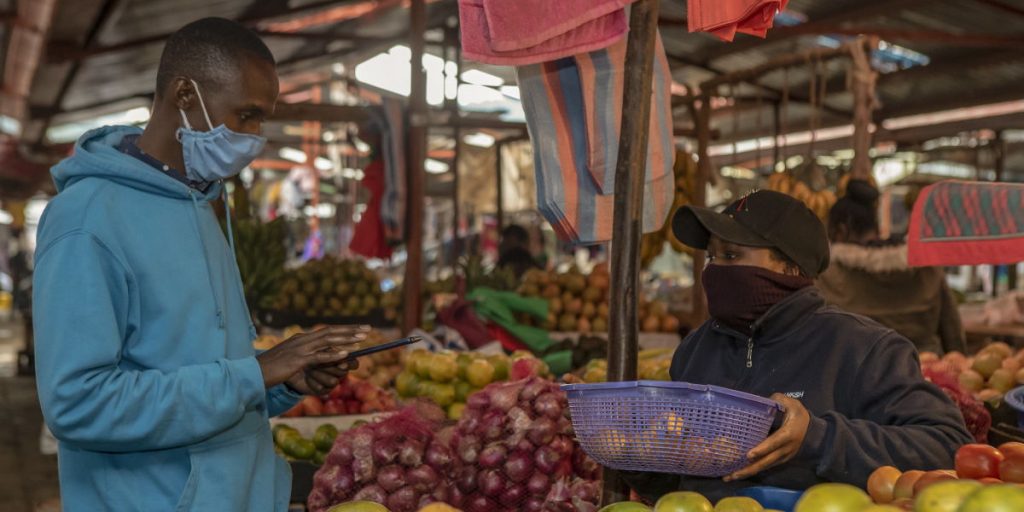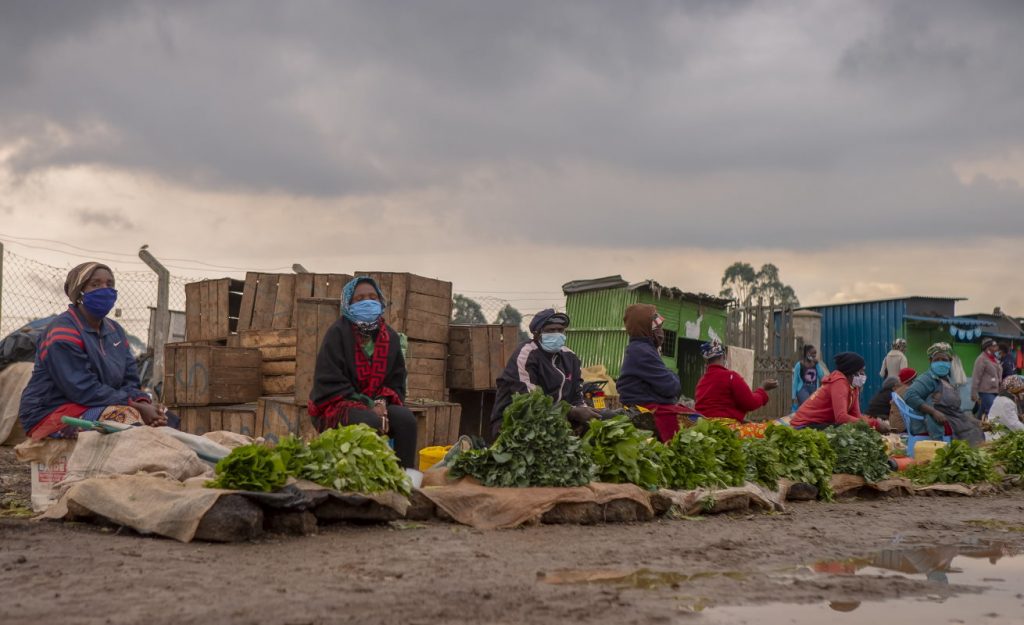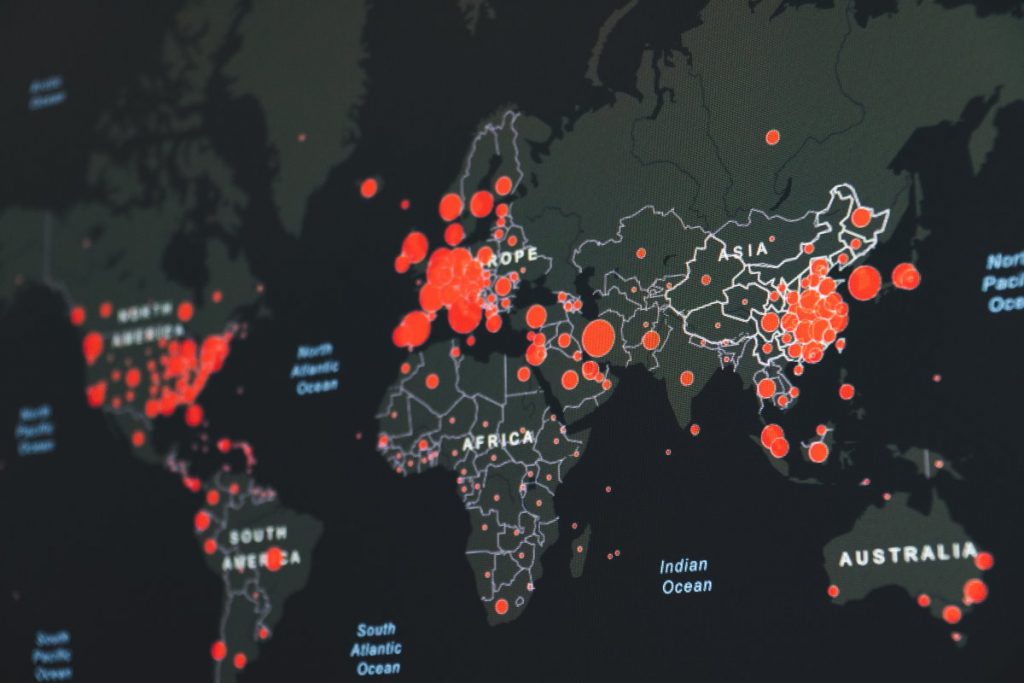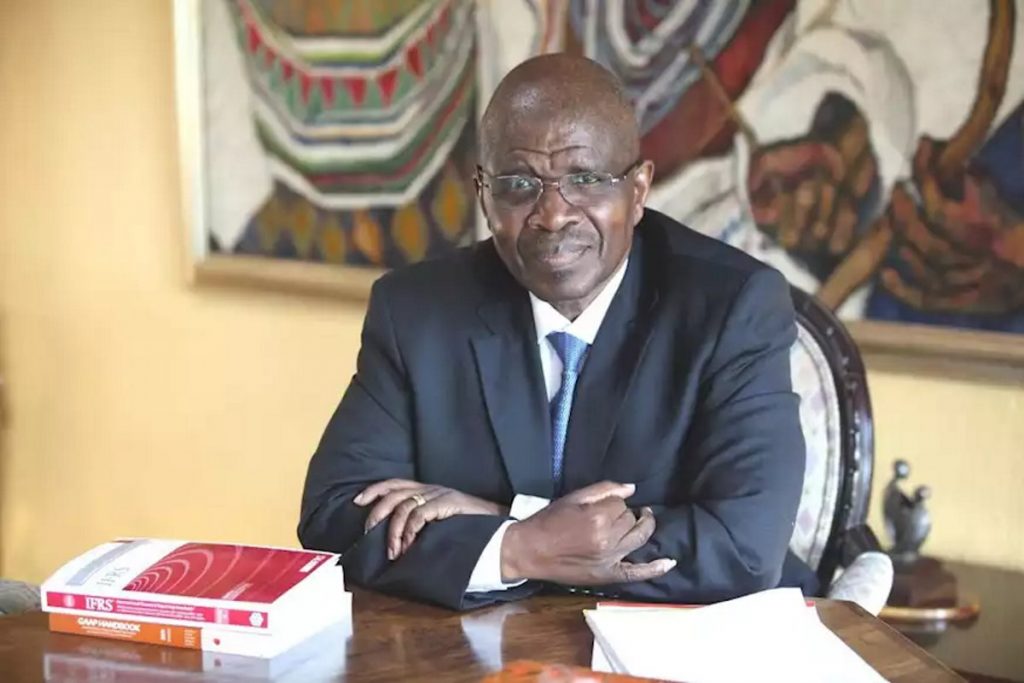ACCORD Programme
COVID-19 & Conflict
ACCORD has rapidly adapted to the new COVID-19 reality and has refocused and restructured a significant proportion of its staff and effort on identifying & monitoring, tracking & analysing, and preparing & responding to COVID-19 related social unrest and violent conflict in Africa.
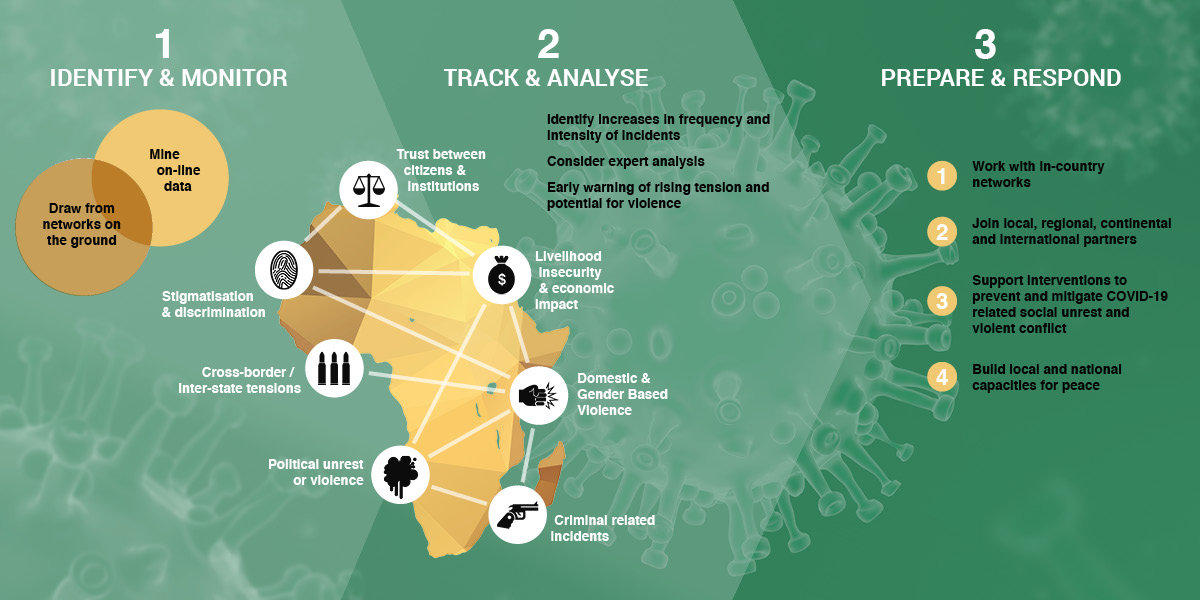
ACCORD’s focus on COVID-19
ACCORD has adapted to the new COVID-19 reality, refocusing and restructuring a significant proportion of its staff and its effort on identifying & monitoring, tracking &, analysing, and preparing & responding to COVID-19 related social-unrest and violent conflict in Africa.
Through our networks across Africa, and supported by available online data, ACCORD identifies COVID-19 related incidents and trends that may provide early warning of rising tensions that could develop into social unrest and violent conflict. Once the incidents are captured in the dataset, ACCORD analyses the trends and publishes a weekly COVID-19 Africa Conflict and Resilience Monitor, in order to share the information and analysis with all stakeholders.
ACCORD then works with its in-country networks and other local, regional, continental and international partners and stakeholders, to encourage and support interventions aimed at mitigating, and where possible preventing, COVID-19 related social unrest and violent conflict.
Conflict & Resilience Monitor
20 Dec 2023
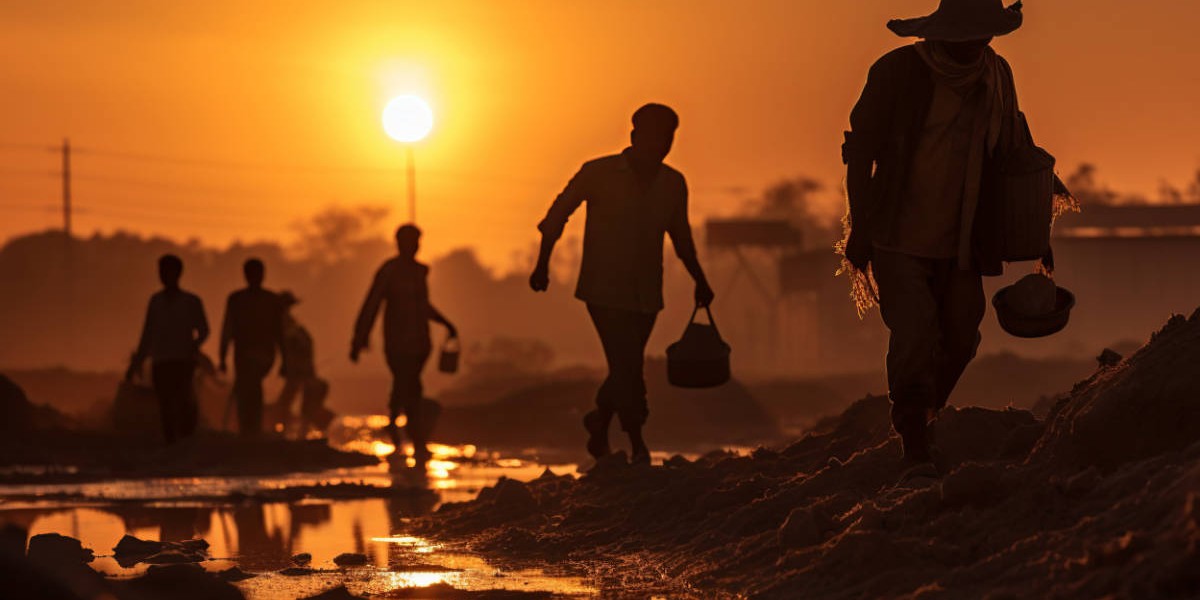
For the final Monitor of the year, we feature a piece from Madam Graça Machel, the Chair of ACCORD’s Board of Trustees, on intergenerational justice and human rights in a time of planetary crises in Africa. In this piece, Madam Machel discusses intergenerational responsibilities in the context of the current climate crisis, nuclear threat and the scourge of inequality. Staying with the topic of climate change, Freedom C. Onuoha has authored a piece which zooms in on climate change induced conflict in the coastal communities of Nigeria’s Niger Delta Region. The piece also explores opportunities for internal security operations to better manage climate change induced conflicts.
Our third piece is from Cedric de Coning on the unintended consequences of United Nations financial support for African Union Peace Support Operations. In it he argues that such financial support will affect African agency and ownership among other transaction costs and performance-related aspects. Related to discussions on peace operations, Chikondi Chidzanja has written on SAMIM as a pragmatic approach to peace operations and counterterrorism in Southern Africa. He argues that the principles behind its practice could mark a new generation of peace operations.
Feature Articles

Intergenerational justice and human rights in a time of planetary crises in Africa
- Graça Machel
Planetary crises are challenges that we face collectively as one human family, and must be overcome with the richness of our full diversity.

Climate change induced conflict in coastal communities of Nigeria’s Niger Delta region and internal security operations: perspectives for the future
- Freedom Onuoha
Climate change is already compounding the level of competition for resources, resulting in conflicts in some parts of Nigeria such as in coastal communities.

The Unintended Consequences of UN financial support for AU Peace Support Operations
- Cedric de Coning
Financing AU peace operations via the UN will have several unintended but foreseeable negative consequences that need to be taken into account.
COVID-19 News
An introduction to Novel coronavirus (2019-nCoV)
ACCORD is an African based global conflict management institution and think tank with nearly 30 years of experience.
The COVID-19 crisis had disrupted ACCORD’s usual work, but the Institution has rapidly adapted and it has now refocused and restructured a significant proportion of its staff and effort on identifying & monitoring, tracking &, analysing and responding to the COVID-19 related social-unrest and violent conflict in Africa.
Local Contact?
If you are able to share information from your experiences on the ground with the crisis in Africa, we'd really like to hear from you. Please get in touch!

